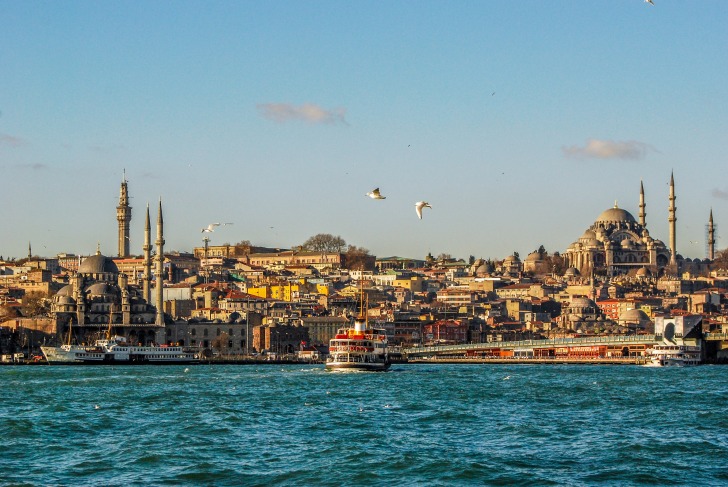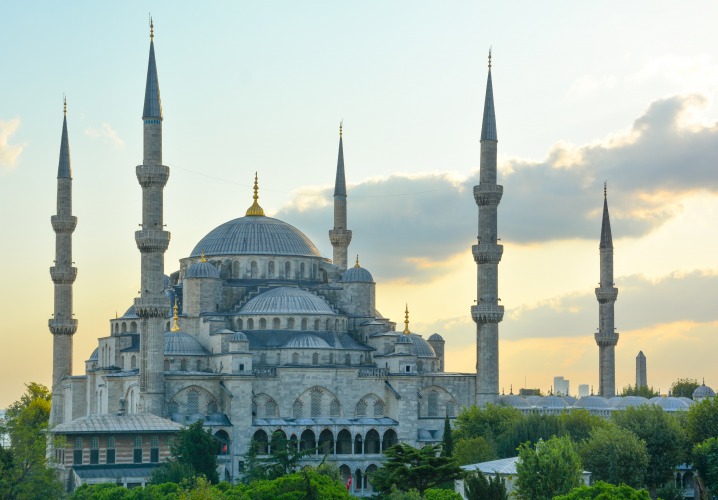Turkey, also known as the Republic of Turkiye, or simply Turkiye, is a country with a very unique location.
Part of the country is located in Asia and other parts are in Europe.
It has a rich and glorious history and is best known for the Ottoman Empire, which invaded and conquered many other countries during the Second Great Expansion.
What many people are wondering is whether it is worth moving to Turkey.
In this article, we will consider some of the advantages and disadvantages of living in Turkey.
 turkey
turkey
Advantages of living in Türkiye
1. Living expenses
One of the first things most people think about is the cost of living in a particular country. Because this has a huge impact on living standards and mental health.
Housing costs have the biggest impact on living costs.
When you compare the cost of living in Turkey to the United States and some Western European countries, it’s easy to see why so many people flock to this country.
The average cost of living for a family of four, excluding rent, is approximately $1,286 (23,967TL) per month.
The cost per person without rent is $368 (6,850TL).
The cost of living in Turkey is 60.97% lower than the US, and rent is 85% lower than the US.
On average, utilities for a small or medium-sized apartment or home cost $65.
A quart of milk costs about $1.
Overall, living in Turkey means your expenses for utilities, food, entertainment, etc. will be much lower than in most parts of Europe.
2. Good medical care
Another factor that can drive up the cost of living is medical costs.
Everyone gets sick from time to time, and an unexpected emergency can deplete your savings.
Rest assured that our health care system will meet your needs and provide you with quality care.
Türkiye’s healthcare system is very complete.
Especially in big cities.
However, if you are a foreigner, you must receive medical care from a private healthcare provider or enroll in universal health insurance.
Foreigners must have health care in order to be legally allowed to work in Turkey.
However, when you purchase private health care, you can rest assured that you will receive the same high-quality health care that the public receives under government-provided plans.
Although universal health insurance does not offer the same benefits as private healthcare, it is still very comprehensive.
Waiting times can be long, especially at private hospitals, and you need to have lived in Turkey for about a year to apply for universal health insurance.
The cost changes every year, but currently it’s around $5.
Private health insurance is provided by insurance companies.
3. People are friendly
Generally speaking, Turkish people are very friendly and helpful.
Turks are well known for their hospitality.
We often hear from visitors who have had wonderful experiences with Turkish hospitality.
They are good cooks and love to sit around the table and share great experiences while eating delicious food.
Turks certainly know how to cook great meals.
Friendship is highly valued in this country, and Turks are especially close to their friends.
Turks also place great importance on family and family care.
You will often be invited into their homes to share their culture and history.
They are very proud of their country and love to share it with foreigners.
4. Large expat community
There is a very large expat community of travelers from all over the world.
Currently, around 325,000 foreigners live in Türkiye.
Many of these foreigners live in Istanbul, the country’s most populous city.
Additionally, the Turkish government remains unwavering in its welcome of asylum seekers from Syria, with approximately 3.2 million Syrians calling Turkey home.
The best thing about having a large expat community is the fact that you have a large support system.
For example, there are many Facebook groups for expats from different countries living in Turkey.
There are also many networking events where these expatriates can gather and share their experiences in Turkey.
Another example is the website group Internationals.
5. Great weather
Winters are quite mild. Turkey is located in both the Eastern and Southern Hemispheres.
It may snow in some areas. However, for the most part, winters are very mild.
The climate varies depending on the region of the country.
For example, if you live near the Aegean Sea and the Mediterranean Sea, you will experience a very mild climate with hot summers called the Mediterranean climate.
Winters in this region are humid, mild and cool, while summers are hot and dry.
On the other hand, if you live in a coastal region adjacent to the Black Sea, you will experience a temperate maritime climate.
These summers are warm and humid and the winters are cool or cold and humid.
Other regions, such as those near the Sea of Marmara, experience a mix of temperate Mediterranean and temperate oceanic climates.
6. Low crime rate
Crime is a major concern for many people.
Fortunately, you don’t have to worry too much about crime in most parts of Turkey.
Pickpocketing is a concern in major tourist destinations and warnings have been issued for unsafe areas, particularly near the Syrian border where kidnappings by terrorist groups are a major concern.
However, Turkey is for the most part a fairly safe country, especially for solo female travelers.
Please note that foreigners must carry their passports with them at all times.
You may also want to invest in a crossbody bag because you’re worried about pickpockets.
Additionally, Turkey is 78% safer than the United States when it comes to violent crime, and overall Turkey is nine times safer than the United States.
7. Delicious food
I have written before that Turkish people are good cooks.
The truth is, Turkish food is really delicious and flavorful.
The secret is that the dishes are made with very fresh ingredients and are very healthy.
There are really no secret ingredients, just super fresh ingredients, delicious spices, and simple recipes.
Examples include kebabs and stuffed grape leaves (dolma).
8. Outdoor living
Thanks to the fantastic climate, many Turks enjoy spending time outdoors most of the year going on picnics, going to the beach, or taking part in one of the many hiking trails found throughout the country.
 turkey
turkey
Cons of living in Türkiye
1. Internet
The internet in Türkiye is censored.
This means you may not always be able to access your website from home.
For example, websites such as Facebook, Youtube, and Twitter are constantly blocked and censored.
2. Culture shock
If you are a Westerner or live in northern or western Europe, you can expect to experience some culture shock.
There is always a culture shock when moving to a foreign country, but this is especially true in Turkey, where the culture and norms are very different from what Westerners are used to.
For example, Westerners tend to get to the point and may flatly say no to requests.
This is considered rude in Türkiye.
Turks just don’t say no, and you can expect a very roundabout response.
This may irritate Westerners.
Furthermore, harassment occurs in Turkey, and sexual harassment against foreign women is a sad reality.
3. English becomes a barrier
Although English is widely spoken in most large cities, this is not always the case in rural areas.
If you love to travel, you may find it difficult to communicate with locals who only speak Turkish.
This can cause further culture shock.
4. Jobs and work permits
Obtaining a job or work permit may prove difficult in Turkey.
You need a work permit to start work, but you can’t get one unless you first secure a job.
This is a challenge in itself.
Most jobs are reserved for Turkish nationals or those who speak Turkish fluently.
Even if you manage to find a job, it can take weeks or months to hear back from your employer, and you can expect to be paid less than a Turkish national for the same job. .
Additionally, the process of obtaining a work permit is extremely slow due to bureaucracy.
5. Currency
If you are planning to go to Türkiye to save money, you will be disappointed.
The Turkish lira has little value in other countries.
You may be able to save money, but you won’t be able to take advantage of it as much in other countries.
6. Terrorism
Although most of Turkey is fairly safe, the same cannot be said about the Turkish-Syrian border.
The threat of terrorism and kidnapping is very real.
These areas are considered extremely dangerous and visitors/expats are asked to stay away from these areas.
7. Imported goods
Buying imported products can be quite expensive.
Most domestic products are relatively inexpensive, but imported products are a different story.
This is mainly due to high import taxes.
Therefore, imported cars and electrical appliances cost a lot of money.
8. Negotiation
Bargaining is a big part of Turkish culture, and everything from food prices to housing is subject to negotiation.
Most Westerners are not very familiar with this concept and may want full price when it comes to housing.
If negotiations are troublesome, ask a real estate agent to negotiate on your behalf.
While this may seem like a negative, it can also be a positive, as you can expect to haggle up to 30-40% in tourist-heavy areas.
You might find a bargain.
Advantages and disadvantages of living in Türkiye – summary table
Advantages of Living in Turkey Disadvantages of Living in Türkiye 1. Cost of Living 1. Internet2. Excellent Medical Care2. Culture Shock3. People are Friendly3. English becomes a barrier4. Large expat community4. Jobs and work permits5. Great weather5. Currency6. Low crime rate6. Terrorism7. Good food7. Imported goods 8. Outdoor living 8.negotiation
Turkey safety overview
Read the full report: Turkey Safety Review
Safety index: Overall risk: High Transport and taxi risk: Low Pickpocket risk: Medium Natural disaster risk: Low Robbery risk: Medium Terrorism risk: High Fraud risk: Medium Risk for female travelers: Medium
Overall risk: High Transport and taxi risk: Low Pickpocket risk: Medium Natural disaster risk: Low Robbery risk: Medium Terrorism risk: High Fraud risk: Medium Risk for female travelers: Medium
FAQ
Can foreigners buy property in Türkiye?
Yes, it is possible if you are in a city and not in a village or countryside.
How long can I stay in Türkiye if I own property?
Foreigners can live in Turkey for 90 out of 180 days a year, whether or not they own real estate.
Is it okay to haggle in Türkiye?
Yes, it’s part of the culture.
Where are the most visited places in Türkiye?
What kind of tourism is famous in Türkiye?
Historic sites and seaside resorts.


